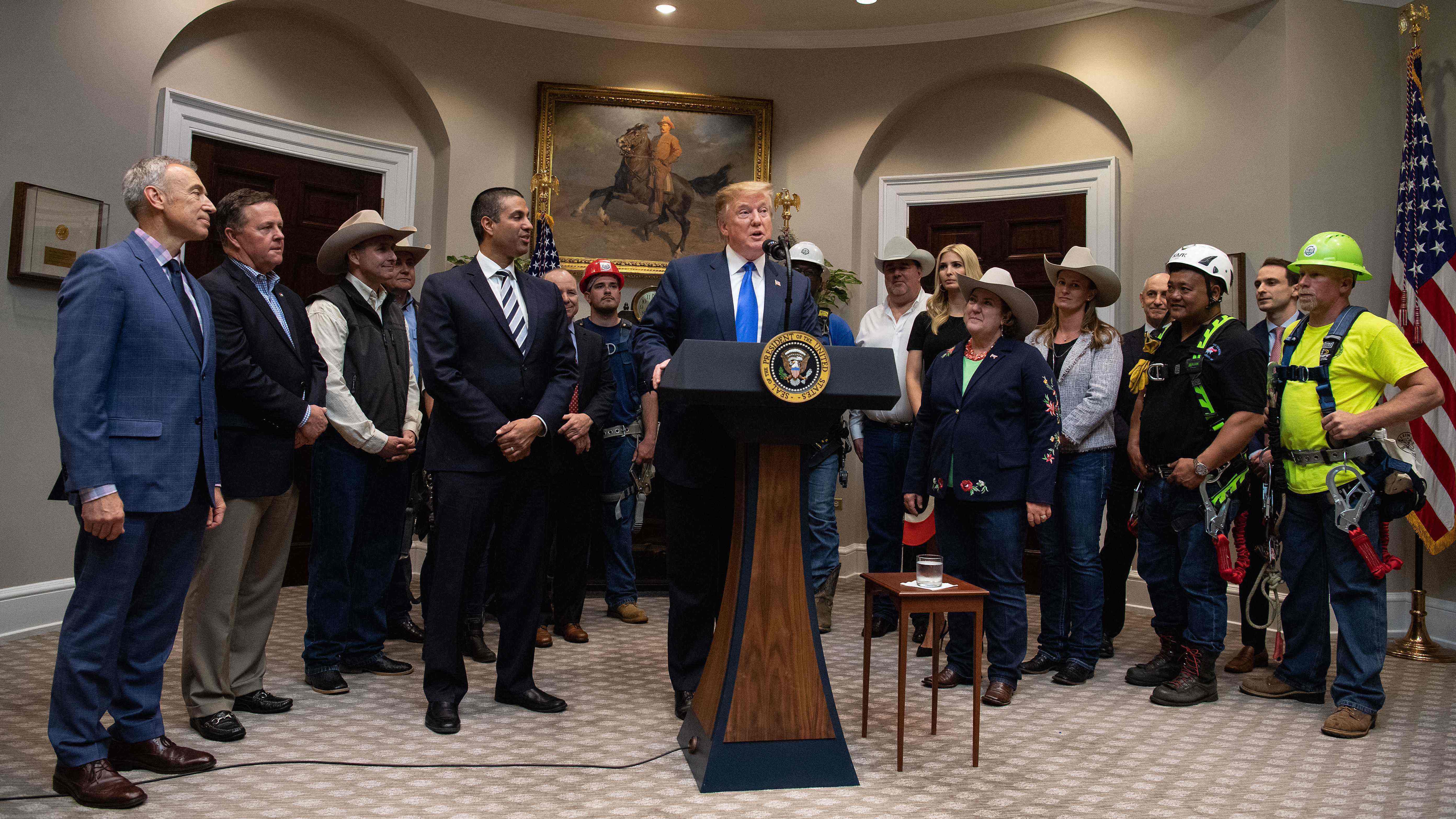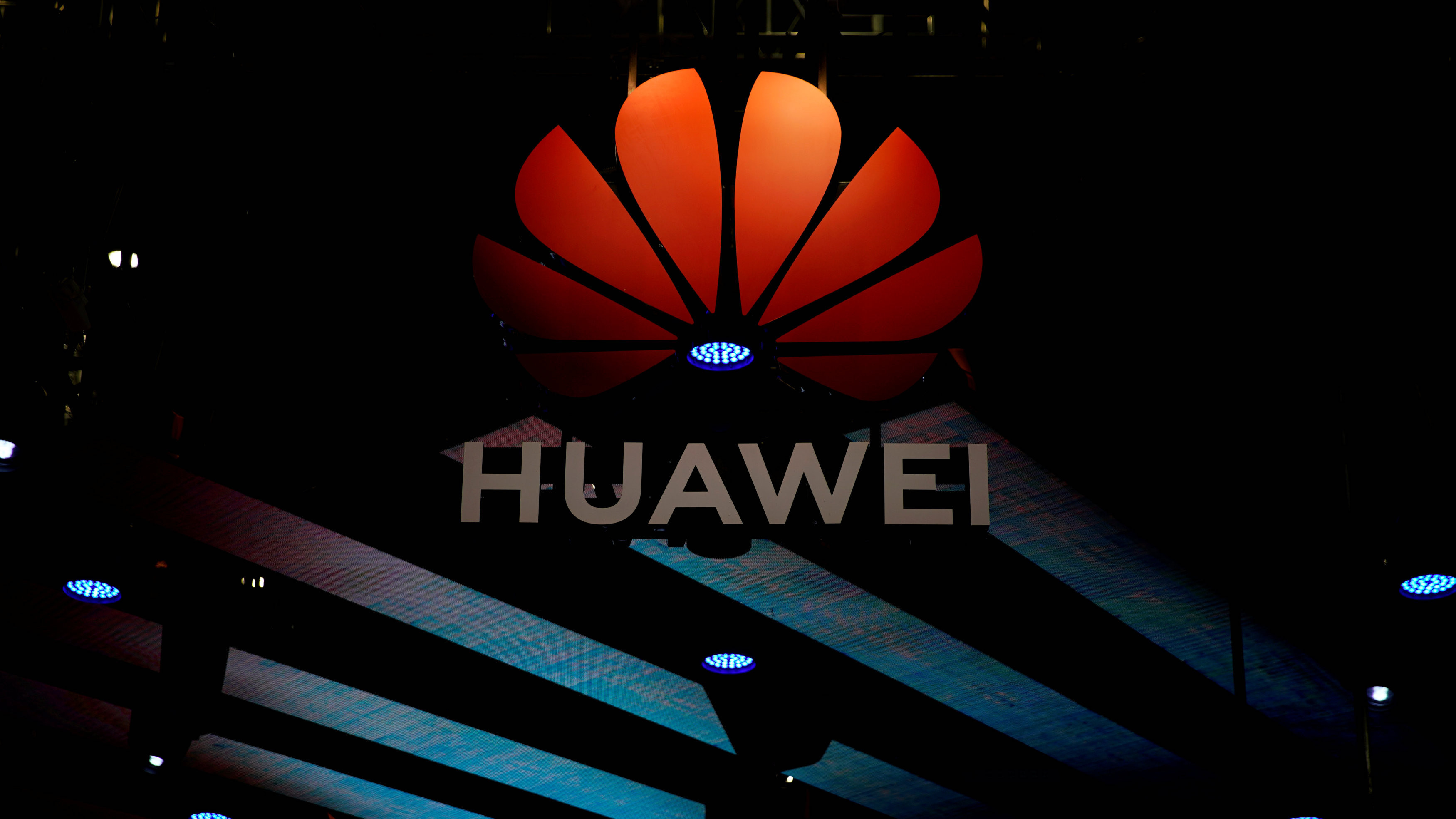
TV Show
15:09, 17-Apr-2019
Why is the U.S lagging in the 5G race?
The Point with Liu Xin
01:52

In a speech on April 12, U.S. President Donald Trump proclaimed "The race to 5G is a race America must win, it's a race that we will win." His words mark a distinct shift from his February tweet in which he admitted the U.S. is "lagging behind" in the 5G race.
"It's difficult to pinpoint why, but the reality is the U.S. is behind (in 5G). I'm amazed to see how sophisticated the mobile communication system is in China. The U.S. is behind in that area. We're not talking of Denmark which has four million people. We're talking about a country with a billion plus people, and they have been done this within five years. It's a remarkable achievement."
Daya Thussu, Disney chair in Global Media Schwarzman College at Tsinghua University explained why he thinks China is ahead in 5G and the U.S. has lagged.
Thussu points to the manufacturing of equipment. The U.S. has ignored it while China has been concentrating on it. The majority of telecommunications equipment is produced in China for the global market.
The U.S. has dropped behind due to domestic corporate reasons, and they are trying to catch up with a mixture of rhetoric and 20 billion U.S. dollars of investment. The U.S. is lagging behind not only China but the Republic of Korea (ROK), and European competitors.
Xu Qinduo, a senior fellow at Pangoal Institution, said that as a senior-level politician, Trump could not bear to admit that the U.S. is not leading.
People are so used to the saying of the United States being the greatest country in the world that no U.S. politician can afford to say America is not number one.
However ambitious Trump's speech may be, realities suggest it may be difficult for the U.S. to catch up.
The Wall Street Journal noted that many Wall Street observers are skeptical the policies announced Friday would do much to change the daunting math for private-sector companies tasked with building the costly new networks across the U.S.
02:01

Meanwhile, a recent report titled “The 5G Ecosystem: Risks & Opportunities for DoD” by the U.S. Defense Innovation Board concluded that China now has 350,000 5G-operable base stations deployed. The U.S. has only one-tenth of that number.
And China's large manufacturers are pushing global 5G deployment through commercial sales of 5G-enabling equipment and devices.
Federal Communications Commissioner Jessica Rosenworcel described the Trump administration's interventions on 5G as “more harm than good.” She tweeted that his policies include imposing tariffs on 5G equipment and alienating allies.
While the U.S. closed its doors to Huawei, Huawei announced it's open to selling its 5G chip to Apple. Apple and Huawei are competitors in 5G manufacturing.
Xu Qinduo spoke highly of Huawei's service and products saying it's not only cheap but also with top quality. He feels that's why for many countries it is hard to simply give up on Huawei. He suggested that the U.S. needs to get on board to reap the benefits of Chinese technology advancement.
(If you want to contribute and have specific expertise, please contact us at opinions@cgtn.com.)

SITEMAP
Copyright © 2018 CGTN. Beijing ICP prepared NO.16065310-3
Copyright © 2018 CGTN. Beijing ICP prepared NO.16065310-3